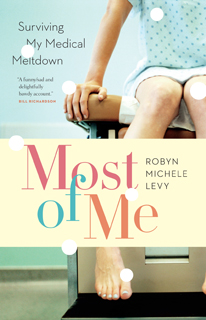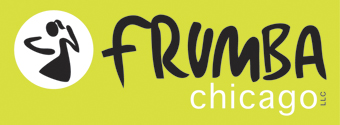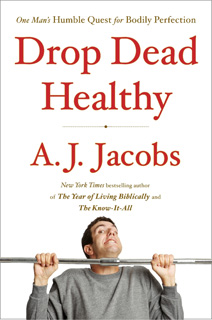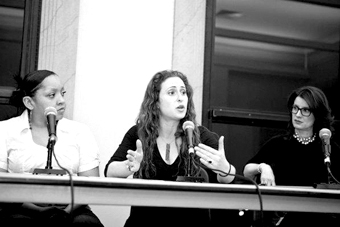1 day, 14 volunteer projects, 3000 lives touched
Permanent link
The economic downturn has had a devastating effect on Illinois, with more than1.5 million people struggling each day just have enough to eat. On Sunday, Sept, 9, the Young Leadership Division and the Tikkun Olam Volunteer Network of the Jewish United Fund of Metropolitan Chicago will host the first Feed Chicago, a citywide day of service providing food assistance to those in need.
"All of us know someone who has been affected by the recession," said Michelle Kallick, a YLD board member. "As the young Jewish community, we have a responsibility to help those in need. It's our turn as a generation to step up and make a positive impact in communities all across Chicago."
Around 100 young adults will join the day-long fight against hunger. With 14 projects scheduled throughout the city – starting early in the morning and ending late in the evening – more than 3,000 lives will be touched by day's end.
"From delivering Rosh Hashanah food packages to elderly Jews in need, to serving meals to impoverished pregnant teens, to sorting and restocking food pantries, Feed Chicago will help thousands of people in need in a single day," said Mara Unterberger, site leader.
Twenty- or 30-something volunteers still are needed. They can sign up for one or more projects at http://www.juf.org/tov/feed_chicago.aspx
Volunteer opportunities include:
Inspiration Café
Where: 4715 N. Sheridan Road, Chicago - Accessible via the CTA Red Line Lawrence stop or the #136 bus
Time: 7:30 - 9:30 a.m.
Volunteers needed: 4
Details: Serve breakfast at the Inspiration Café.
Lincoln Park Community Shelter
Where: 600 W. Fullerton Parkway, Chicago - Accessible via the CTA Red, Purple and Brown Lines Fullerton stop
Time: 7:30 - 9:30 a.m.
Volunteers needed: 5
Details: Buy, cook and serve breakfast to residents of the shelter. Volunteers must buy food.
Maot Chitim
Where: 5821 N. Broadway, Chicago - Accessible via the CTA Red Line Thorndale stop or the #136 bus
Time: 8 - 10 a.m.
Volunteers needed: 10
Details: Deliver Rosh Hashanah food packages to residents in the building.
Maot Chitim
Where: 6400 N. Sheridan Road, Chicago - Accessible via the CTA Red Line Loyola stop or the #136 bus
Time: 8 - 10 a.m.
Volunteers needed: 15
Details: Deliver Rosh Hashanah food packages to residents in the building.
Maot Chitim
Where: Starting from a north suburban warehouse location TBD
Time: 9 - 10:30 a.m.
Volunteers needed: 100
Details: Deliver Rosh Hashanah food packages in Chicago and its suburbs. Volunteers must have a vehicle to make deliveries.
JUF Uptown Café
Where: 909 W. Wilson Ave, Chicago - Accessible via the CTA Red Line Wilson stop or the #136 bus
Time: 10:30 a.m. - 12:30 p.m.
Volunteers needed: 10
Details: Set tables, serve a restaurant-style meal, clear tables, and visit with guests.
Cornerstone Community Outreach
Where: 4628 N. Clifton Ave, Chicago - Accessible via the CTA Red Line Wilson stop or the #136 bus
Time: 11 a.m. - 1:30 p.m.
Volunteers needed: 9
Details: Serve lunch to residents at the shelter.
Connections for the Homeless
Where: 1458 Chicago Ave, Evanston - Accessible via the CTA Purple Line Dempster stop or the Metra UP-N Line Evanston (Davis St.) stop
Time: Noon - 2 p.m.
Volunteers needed: 12
Details: Sort food and toiletries. Volunteers are asked to bring in their own food donations to add to the food pantry.
A Just Harvest
Where: TBD
Time: 1 - 3 p.m.
Volunteers needed: 18
Details: Pack a minimum of 150 sack lunches to be distributed to clients of A Just Harvest. Volunteers are responsible for purchasing food.
Campus Kitchen at Northwestern University
Where: Allison Dining Hall, 1820 Chicago Ave., Evanston - Accessible via the CTA Purple Line Davis stop or the Metra UP-N Line Evanston (Davis St.) stop
Time: 1:15 - 2:45 p.m.
Volunteers needed: 5
Details: Repackage unused dining hall food into both individual meals and large, family-style meal dishes.
Interfaith House
Where: 3456 W. Franklin Blvd., Chicago - Accessible via the CTA Green Line Clark/Lake stop or the #82 bus
Time: 3:15 - 5:30 p.m.
Volunteers needed: 15
Details: Buy, cook and serve meals to 64 residents as part of the Share-A-Meal program. Meal should include an appetizer, entrée and dessert. Volunteers are responsible for purchasing food.
A Just Harvest
Where: 7649 N. Paulina St., Chicago - Accessible via the CTA Red Line Howard stop
Time: 4 - 6 p.m.
Volunteers needed: 6
Details: Distribute pre-prepared sack meals to clients of A Just Harvest.
Open Door Youth Shelter - Response-Ability Pregnant and Parenting Program (RAPPP)
Where: 3262 N Clark St., Chicago - Accessible via the CTA Red Line Belmont stop
Time: 5 - 7 p.m.
Volunteers needed: 1
Details: Make and serve dinner to teens participating in RAPPP. Women volunteers only.
Lincoln Park Community Shelter
Where: 600 W. Fullerton Parkway, Chicago - Accessible via the CTA Red, Purple and Brown Line Fullerton stop
Time: 6 - 8:30 p.m.
Volunteers needed: 11
Details: Buy, cook and serve dinner to residents of the shelter. Volunteers are responsible for purchasing food.





.jpg)




.jpg)



